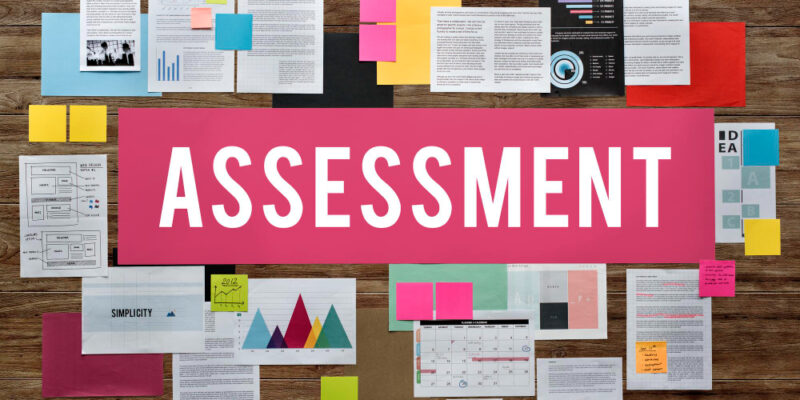Assessment services refer to the process of gathering, analyzing, and interpreting data to evaluate an individual or organization’s performance, abilities, and strengths. It is an integral tool used in various fields, including education, psychology, healthcare, and the workplace, among others.
Assessment services are important as they help individuals and organizations make informed decisions, identify areas for improvement, and ultimately achieve better outcomes. In this blog post, we will explore the different types of assessment services, the benefits they offer, how they work, and factors to consider when choosing assessment services. By the end of this article, you will have a comprehensive understanding of the importance of assessment services and how they can be useful in your personal and professional life.
Types of Assessment Services
There are different types of assessment services depending on the area of focus. Here are the most common types of assessment services:
- Educational Assessment Services
Educational assessment services help evaluate students’ academic performance, strengths, and weaknesses. These assessments include standardized tests, quizzes, exams, and assessments of learning styles. The results of these assessments help teachers tailor their instruction to meet individual students’ needs.
- Psychological Assessment Services
Psychological assessment services are used to diagnose and treat mental health conditions. These assessments include personality tests, cognitive assessments, and diagnostic interviews. The results of these assessments help mental health professionals develop a treatment plan that meets the patient’s needs.
- Workplace Assessment Services
Workplace assessment services help organizations evaluate employee performance, skills, and abilities. These assessments include job performance reviews, skills assessments, and employee surveys. The results of these assessments help organizations make informed decisions regarding promotions, training, and staffing.
- Medical Assessment Services
Medical assessment services are used to diagnose and treat medical conditions. These assessments include physical exams, laboratory tests, and diagnostic imaging. The results of these assessments help medical professionals develop a treatment plan that meets the patient’s needs.
Benefits of Assessment Services
Assessment services offer various benefits, including:

- Identifying Strengths and Weaknesses
Assessment services help individuals and organizations identify their strengths and weaknesses. This information helps them make informed decisions about how to improve their performance.
- Making Informed Decisions
The results of assessments provide individuals and organizations with valuable information that they can use to make informed decisions. For example, educational assessment services can help students choose the right courses, and workplace assessment services can help organizations make informed decisions about hiring and promotions.
- Improving Outcomes and Results
Assessment services help individuals and organizations improve their outcomes and results. By identifying strengths and weaknesses, individuals and organizations can make improvements that lead to better performance.
- Personal and Professional Growth
Assessment services help individuals and organizations grow and develop. By identifying areas for improvement, individuals and organizations can focus on professional development and personal growth.
How Assessment Services Work
Assessment services involve gathering data, analyzing and interpreting it to make informed decisions. The assessment process typically involves the following steps:
Assessment services involve a systematic process of gathering information, analyzing it, and interpreting the results to inform decision-making. The assessment process typically involves the following steps:
- Identifying the purpose of the assessment: Before conducting an assessment, it is important to identify the purpose of the evaluation. This could be to evaluate an individual’s abilities, diagnose a health condition, or assess the effectiveness of a program, among others.
- Selecting appropriate assessment tools: Depending on the purpose of the assessment, different tools can be used, such as standardized tests, surveys, interviews, observations, or performance evaluations.
- Administering the assessment: The assessment is then administered to the individual or group being evaluated. The process can be conducted in person, online, or using other methods, depending on the assessment tools used.
- Analyzing and interpreting the results: Once the assessment is complete, the results are analyzed and interpreted to provide meaningful insights. This involves comparing the results against established standards, norms, or benchmarks to determine the individual or group’s performance levels.
- Communicating the results: The final step is to communicate the results to the appropriate stakeholders, such as the individual being evaluated, healthcare professionals, or organizational leaders. This can include providing feedback, recommendations for improvement, or other actionable insights.
Factors to Consider When Choosing Assessment Services
When choosing assessment services, there are several factors to consider to ensure you get the best possible outcome. These factors include:
- The type of assessment needed: The type of assessment needed will depend on the purpose of the evaluation. For example, if you need to evaluate an individual’s mental abilities, you will need a cognitive assessment. Therefore, it is essential to identify the specific assessment needed to ensure you choose the right assessment service provider.
- The qualifications of the assessment service provider: It is important to choose an assessment service provider with the appropriate qualifications and expertise in the relevant field. Look for professionals with relevant degrees, certifications, and experience in the type of assessment you need.
- The cost of the assessment services: The cost of assessment services can vary widely depending on the type of assessment and the service provider. It is essential to compare prices from different providers to ensure you get the best value for your money. However, it is important to note that cheaper services may not always provide the best quality results.
- The timeline for receiving results: The timeline for receiving results can also be an important factor to consider, especially if the assessment is time-sensitive. Be sure to ask the service provider about their turnaround time for providing results.
- The service provider’s privacy policy: It is crucial to choose an assessment service provider who has a strong privacy policy and is committed to protecting the confidentiality of the assessment results. Look for providers who are compliant with data protection regulations, such as HIPAA and GDPR.
Conclusion
Assessment services are an essential tool for individuals and organizations. They help identify strengths and weaknesses, make informed decisions, improve outcomes and results, and promote personal and professional growth. Understanding the different types of assessment services and factors to consider when choosing them is essential for individuals and organizations to make the most of assessment services.










Comments